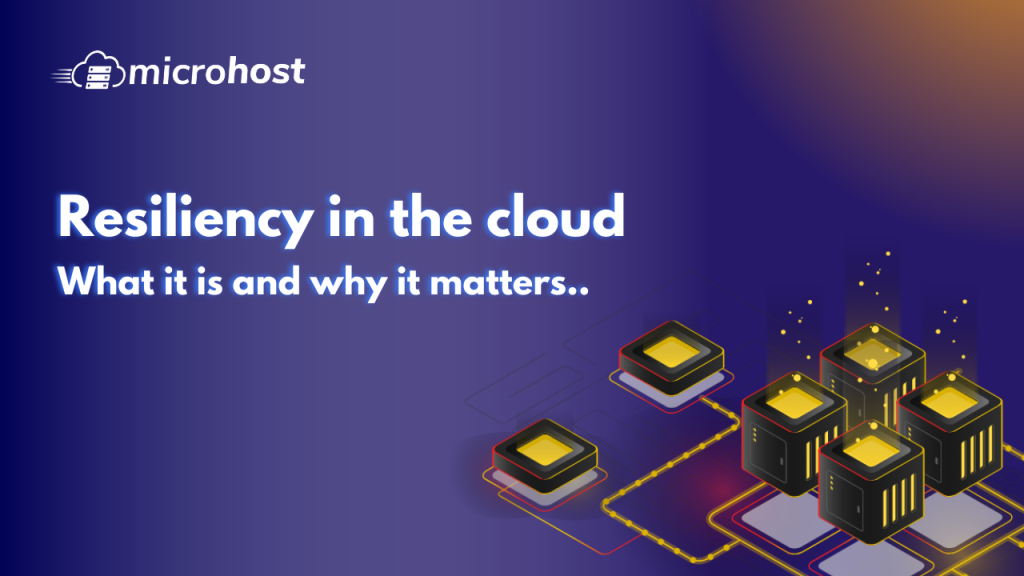Resiliency in the cloud: What it is and why it matters
Cloud computing has become an essential aspect of modern business, enabling organizations to easily store and access their data and applications in remote servers. However, as with any technology, there is always a risk of downtime or data loss. This is where cloud resiliency comes in.

Resiliency in the cloud
Cloud resiliency is the ability of a cloud infrastructure to continue operating even in the face of disruptions or failures. In other words, it is the capacity of a cloud system to maintain its core functions and data availability even during adverse conditions. This could be due to natural disasters, cyber-attacks, hardware failures, software bugs, or human errors.
Why cloud resiliency matters.
With businesses relying heavily on cloud technology to keep their operations running, any downtime or data loss can have severe consequences, such as revenue loss, damage to reputation, and legal liabilities. Cloud resiliency helps to minimize these risks by ensuring that the system remains operational and data is accessible even during disruptions.
For example, if there is a power outage at a data center, a resilient cloud system would automatically switch to an alternative data center, ensuring that applications and data remain available to users without any interruption.
Another advantage of cloud resiliency is that it helps to reduce recovery time in case of disruptions. Instead of spending time and resources on restoring data and systems, a resilient cloud system can quickly recover from failures and resume operations.
In addition, it can also help businesses to comply with regulatory requirements related to data availability and disaster recovery.
Conclusion
In today's digital age, cloud resiliency has become a critical component of business continuity planning. By ensuring that cloud systems are designed to withstand disruptions and failures, businesses can minimize downtime, reduce recovery time, and protect themselves against potential risks. Therefore, it's important for businesses to consider resiliency in cloud when selecting a cloud provider and designing their IT infrastructure.